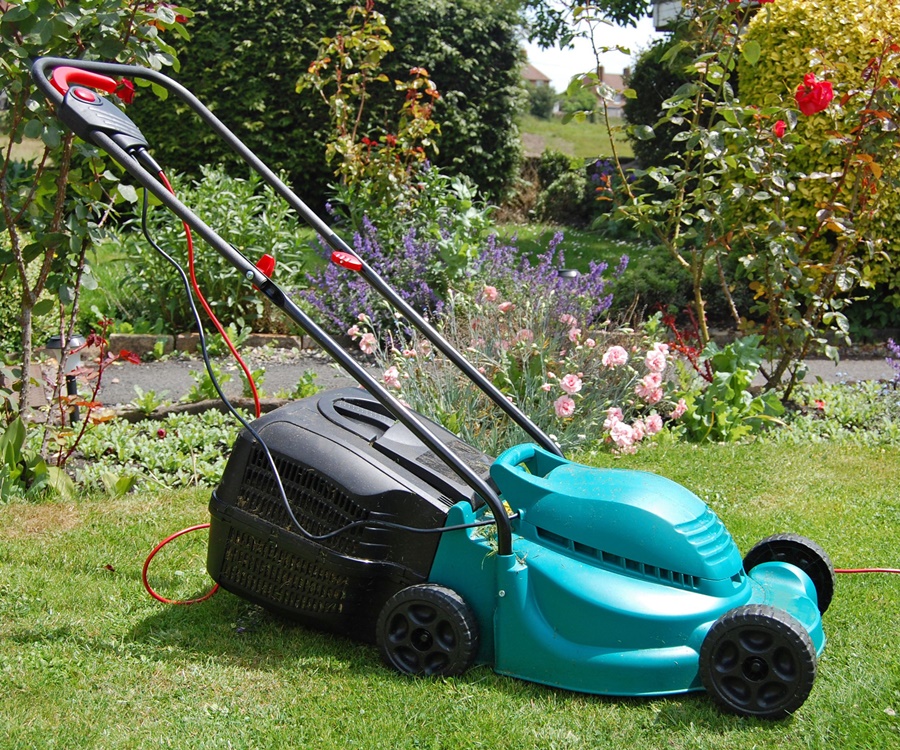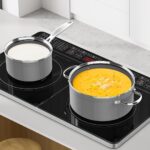When choosing between a cordless mower and a corded mower, homeowners often find themselves in a dilemma. Both types offer distinct advantages and drawbacks, and the right choice depends heavily on lawn size, power requirements, budget, and convenience expectations. In this comprehensive guide, we examine every aspect of cordless and corded mowers, so you can make an informed decision that suits your needs.
What is a Cordless Mower?
A cordless lawn mower is a battery-powered machine that offers complete mobility without being tethered to a power cord. These mowers use rechargeable lithium-ion batteries and are ideal for homeowners looking for convenience and flexibility in mowing.
Key Features of Cordless Mowers
- Mobility: No cords mean freedom to move around without any restrictions.
- Rechargeable Battery: Operates on high-capacity lithium-ion batteries.
- Quiet Operation: Produces less noise compared to gas mowers.
- Eco-Friendly: Emits no direct pollutants into the environment.
- Compact Storage: Many models offer foldable handles and vertical storage.
What is a Corded Mower?
A corded lawn mower is powered directly by electricity through an extension cord. It delivers consistent power for as long as it’s plugged in and is often lighter and more affordable than its cordless counterpart.
Key Features of Corded Mowers
- Unlimited Runtime: As long as it’s plugged in, it won’t run out of power.
- Lightweight Design: Lighter than cordless due to the absence of a battery.
- Less Maintenance: No batteries to charge or replace.
- Budget-Friendly: Typically lower cost upfront and no battery replacement expenses.
- Consistent Performance: Steady power flow ensures even cutting quality.
Performance Comparison: Power & Cutting Ability
Cordless Mower Power Output
Cordless mowers have come a long way in terms of power. Modern units can easily match the performance of small gas-powered or corded mowers, especially with brushless motors that deliver efficient cutting with reduced wear.
- Voltage Ranges: 36V to 80V systems available.
- Ideal For: Small to medium-sized lawns (up to ½ acre).
- Battery Life: Usually 30 to 60 minutes per charge, depending on terrain and grass thickness.
Corded Mower Power Output
Corded models rely on your home’s electricity, so power is consistent and doesn’t diminish over time.
- Motor Ratings: Usually range from 10 to 15 amps.
- Ideal For: Small yards with easy cord access.
- Limitations: Limited by extension cord length (typically up to 100 feet).
Ease of Use and Convenience
Cordless Mower Convenience
Cordless models are known for their plug-and-play simplicity. Just insert the charged battery and mow.
- No cords to manage.
- Freedom to reach tight or distant corners of the yard.
- Ideal for yards with obstacles like trees or flower beds.
Corded Mower Challenges
While they are lightweight, corded mowers require constant awareness of the cord.
- Risk of tangling or accidentally cutting the cord.
- Requires strategic mowing to avoid dragging the cord.
- Not practical for larger lawns or those with many obstacles.
Runtime and Recharge Times
Cordless Mowers
Battery life is a common concern. Most cordless models offer:
- 30-60 minutes of runtime per charge.
- 1-2 hours to recharge, depending on the battery size and charger.
- Backup Batteries: Many users invest in a second battery to extend usage time.
Corded Mowers
- Unlimited runtime as long as plugged in.
- No waiting for charging, ever.
- Dependent on proximity to power outlets and extension cord compatibility.
Maintenance Requirements
Cordless Lawn Mower Maintenance
- Battery Care is essential (avoid overcharging, store properly).
- Blade sharpening as with any mower.
- Occasional cleaning of motor housing and wheels.
Corded Lawn Mower Maintenance
- Virtually maintenance-free aside from blade sharpening and occasional cleaning.
- No battery upkeep or replacement needed.
Cost Comparison: Upfront and Long-Term
Cordless Mowers
- Upfront Cost: $250 – $600 depending on battery and brand.
- Battery Replacement: Every 3–5 years, costing $100–$200.
- Charger Inclusions: Some models come with a fast charger; others may require separate purchase.
Corded Mowers
- Upfront Cost: $100 – $250, making them highly affordable.
- Long-Term Costs: Minimal. No battery expenses.
- Extension Cord: May require purchase if not already available (50–100 ft cords).
Environmental Impact
Both cordless and corded mowers are more eco-friendly than gas mowers. However:
- Cordless mowers use lithium-ion batteries, which have limited life spans and require proper disposal.
- Corded mowers rely on continuous electricity use but produce no direct emissions or battery waste.
Safety Considerations
Cordless Mowers
- Safer in wet conditions since there’s no direct electric connection to worry about.
- Less risk of tripping or electrocution.
Corded Mowers
- Risk of electric shock if used in damp conditions.
- Cord management is critical to avoid accidents.
Best Use Cases: When to Choose What
Choose a Cordless Mower If:
- You have a medium-sized lawn (¼ to ½ acre).
- Your lawn has obstacles like trees, fences, or garden beds.
- You want freedom from cords and more mobility.
- You prefer quiet operation and clean energy.
Choose a Corded Mower If:
- You have a small lawn under 5,000 square feet.
- You want a budget-friendly solution.
- You don’t mind managing a cord.
- You’re looking for a low-maintenance option.
Top Brands and Models to Consider
Cordless Mowers
- EGO Power+ LM2156SP: Powerful 56V with 75-minute runtime.
- Greenworks Pro 80V: High torque, rapid charging.
- Ryobi 40V HP Brushless: Excellent for medium lawns.
Corded Mowers
- BLACK+DECKER MM2000: 13-amp motor with EdgeMax deck.
- Greenworks 25022: 12-amp motor, 20-inch steel deck.
- Sun Joe MJ401E-PRO: Compact, lightweight, great for small yards.
Conclusion
The decision between cordless vs corded mower ultimately depends on your yard size, power needs, and personal convenience preferences.
- Go cordless if you value freedom, quietness, and technological advancement.
- Go corded if you’re after simplicity, cost-effectiveness, and no runtime limitations.
In many cases, users with larger or more complex lawns lean toward cordless models, while those with small, open yards benefit from the efficiency and affordability of corded options.








Leave a Reply